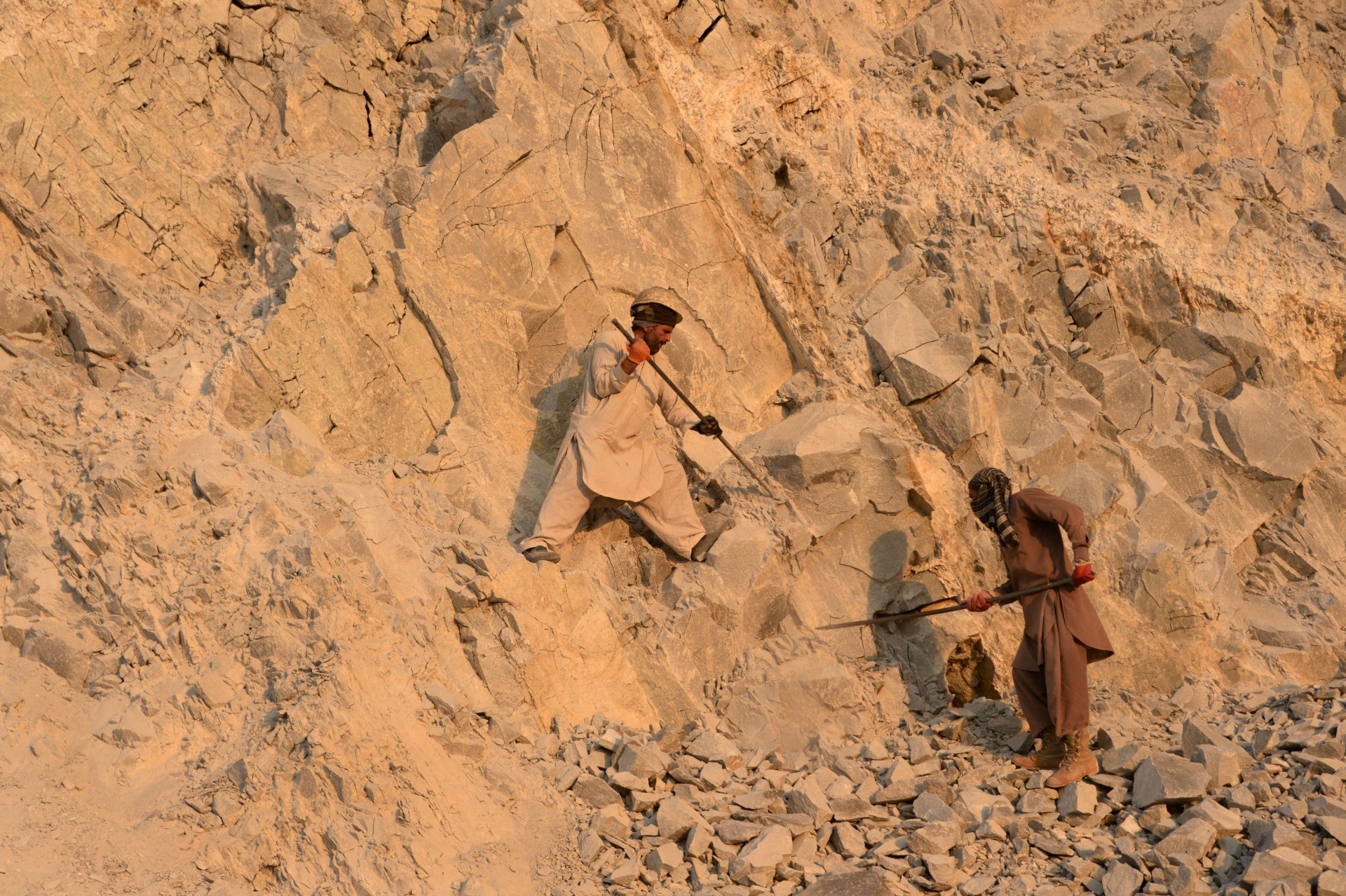China’s state-run Global Times on Tuesday reported Chinese corporations are excited by the business opportunities in Afghanistan, once the Taliban “stabilizes” its conquered land and eliminates the “uncertainty” holding China’s ambitions in check.
“While much uncertainty remains, given the fluid situation in Afghanistan, there are huge opportunities for mutually beneficial cooperation between the two countries, especially in sectors such as utilities and mining, if the country under the Taliban’s leadership pursues peace and development after years of war,” the Global Times wrote, citing eager Chinese executives and analysts.
The article mentioned complaints about slow progress at big Chinese projects in Afghanistan, such as the Aynak copper mine near Kabul, which Chinese companies hold a 30-year lease on. “Safety issues” have thus far prevented the mine from operating.
China also has a stalled $400 million oil field project with a 25-year deal in Afghanistan, plus some $110 million in “infrastructure projects,” a figure the Global Times said surged 158.7 percent last year.
Many of those infrastructure contracts pertain to power generation, including the sort of large-scale coal-fired electrical plants the international climate change movement was told China will stop building any day now.
“As the U.S. is leaving after fighting a war in Afghanistan for years, and there is a major power shift in the country, projects could resume and more win-win cooperation between China and Afghanistan could be launched, if the new Afghan government pursues peace and development,” the Global Times hoped, pointing to the Taliban’s “open attitude toward cooperation with China” as reason for optimism:
During a meeting with Chinese State Councilor and Foreign Minister Wang Yi in North China’s Tianjin on July 28, Taliban political commission representative Mullah Abdul Ghani Baradar said that it would create a suitable investment environment in Afghanistan and he hoped that China would get more involved in bringing peace to Afghanistan and play a bigger role in the country’s future economic development.
The Chinese are still projecting an atmosphere of “anxiety rather than glee” over Afghanistan to U.S. media, as professor John Delury of Seoul’s Yonsei University put it to the New York Times on Wednesday.
Much of that anxiety revolves around the East Turkestan Islamic Movement (ETIM), a terrorist organization regarded as long defunct by U.S. and European intelligence agencies, but portrayed as a massive threat on par with al-Qaeda or ISIS by China. Chinese media frequently cites ETIM as a threat that could become far more dangerous in the chaos of fallen Afghanistan.
Chinese media operations caper with glee over the U.S. debacle in Afghanistan, portraying it as the decisive end of the American “empire,” but then claim to be deeply apprehensive and resentful of the security headaches Washington is foisting on Beijing, ranging from threats to Chinese investments in Afghanistan to fears of the Taliban’s malign extremist influence reaching out to Muslims in China, or a tidal wave of refugees fleeing across the Afghan border.
The Global Times article, however, spotlights the opportunities China sees in Afghanistan, where Beijing rushed to declare its friendship to the Taliban and offer its economic and political assistance to their Islamic Emirate. Chinese media is filled with stories of how Chinese diplomats and businessmen in Kabul are perfectly safe under Taliban protection and have suffered only minor inconveniences from the takeover.
There could be some risks ahead for Beijing, which might have noticed the Taliban is not very good at keeping its promises or following up on declarations of friendship, but Chinese media are playing up their anxieties to distract from the glittering prizes China stands to collect in Afghanistan, prominently including its vast mineral wealth.

Afghan labourers work at a stone mine on the outskirts of Jalalabad. (NOORULLAH SHIRZADA/AFP via Getty Images)
“Afghanistan has some of the world’s largest deposits of lithium, estimated to be worth between $1 trillion and $3 trillion. The bad news is that Joe Biden’s decision to pull American troops out of that country has unilaterally—and literally—handed all of the potential bound up in those lithium deposits to Chinese communists,” Nigel Farage noted at Newsweek on Wednesday.
Farage observed the U.S. government invested considerable resources in discovering Afghanistan’s mineral wealth over the past twenty years, with a Pentagon internal memo dubbing it “the Saudi Arabia of lithium,” but now China will get to exploit the immense wealth America mapped out.
Those minerals are exactly what China needs to fuel its massive industrial growth, leading Farage to predict that rapacious China will relentlessly develop its carbon-spewing industries with Afghan metals and kill off the “green revolution” while Western nations are still frantically trying to cripple their own economies in the name of climate change.

COMMENTS
Please let us know if you're having issues with commenting.